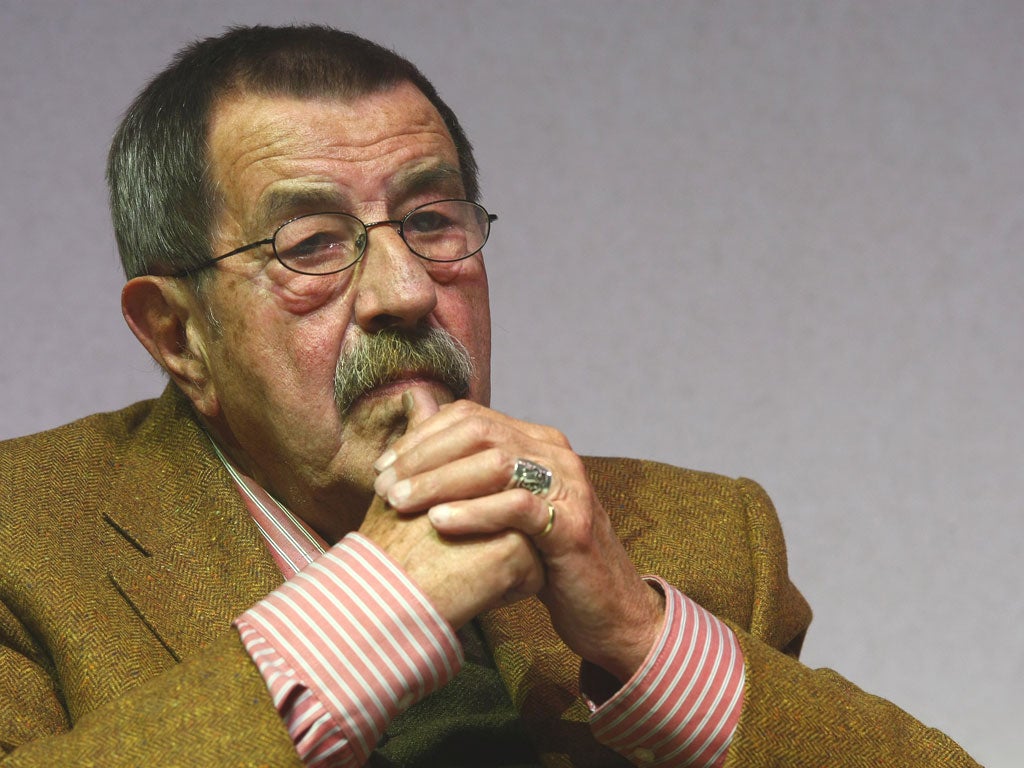Jewish state blacklists Grass over critical poem

Your support helps us to tell the story
From reproductive rights to climate change to Big Tech, The Independent is on the ground when the story is developing. Whether it's investigating the financials of Elon Musk's pro-Trump PAC or producing our latest documentary, 'The A Word', which shines a light on the American women fighting for reproductive rights, we know how important it is to parse out the facts from the messaging.
At such a critical moment in US history, we need reporters on the ground. Your donation allows us to keep sending journalists to speak to both sides of the story.
The Independent is trusted by Americans across the entire political spectrum. And unlike many other quality news outlets, we choose not to lock Americans out of our reporting and analysis with paywalls. We believe quality journalism should be available to everyone, paid for by those who can afford it.
Your support makes all the difference.Israel has declared the German Nobel laureate, Gunther Grass, "persona non grata" following the publication of his poem suggesting that the Jewish State poses a greater threat to world peace than Iran.
The celebrated author, 84, was forced to defend his poem at the weekend after drawing accusations of penning an anti-Semitic tract, saying that his criticism was directed at Israeli Prime Minister Benjamin Netanyahu and not Israel as a whole.
After the work was published in a German newspaper last week, Mr Netanyahu accused the author of "shameful moral equivalence" and suggested that his criticisms derived from his time in the Waffen-SS during the Second World War.
Reflecting the bitter official mood in Israel, Interior Minister Eli Yishai yesterday said that Grass would in future be barred from entering the country. "Grass's poems are an attempt to guide the fire of hate towards the State of Israel... and to advance the ideas of which he was a public partner in the past, when he wore the uniform of the SS," Mr Yishai said, adding that if the author wants to publicise "his distorted and false works, I suggest he do it in Iran, where he will find a supportive audience".
In his poem What must be said, Mr Grass said that Israel endangered "a fragile world peace" and warned that it "could wipe out the Iranian people" with a "first strike" to stop Tehran's nuclear ambitions.
He acknowledged in the work that his words might be taken for anti-Semitism, but said that he felt it was imperative to speak out before it was "too late".
Grass is best known for his anti-war novel The Tin Drum.
Join our commenting forum
Join thought-provoking conversations, follow other Independent readers and see their replies
Comments